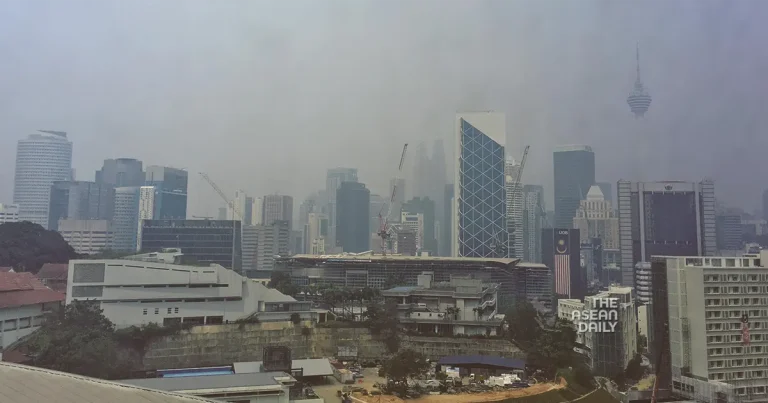5-9-2023 (KUALA LUMPUR) As Malaysia grapples with hazy conditions, medical experts are sounding the alarm about the detrimental impact of air pollution on bacterial spread and the potential acceleration of antibiotic resistance.
Specialists have warned that airborne pollutants can disrupt bacterial cell walls, making it easier for them to absorb elements that contribute to antibiotic resistance. This phenomenon, known as horizontal gene transfer, enables bacteria to evolve rapidly, becoming increasingly resistant to antibiotics.
Modelling studies have indicated that this form of antibiotic resistance develops more swiftly compared to other causes. Dr. Kumitaa Theva Das, a virologist from Universiti Sains Malaysia (USM), cited a recent study involving nine bacterial pathogens and nearly 50 types of antibiotics.
The study’s findings demonstrated a significant correlation between air pollution and antibiotic resistance. Specifically, it revealed that a 1% increase in air pollution was linked to a potential 1.9% increase in antibiotic resistance.
Dr. Kumitaa emphasised, “This study illustrates that pollutants expedite bacterial evolution, making particle pollution a potential leading driver of antibiotic resistance. Among other sources, this pollution can be attributed to wildfires, which are currently plaguing our region.”
These pollutants not only affect respiratory health but can also pose a heightened risk to vulnerable populations such as children, the elderly, and individuals with heart and lung conditions like asthma.
As parts of Malaysia remain shrouded in haze, air quality monitors recorded an unhealthy Air Quality Index (AQI) of 181 in Selangor’s state capital, Shah Alam, and Kuching in Sarawak. An AQI reading between 151 and 200 is considered unhealthy, with an increased likelihood of adverse effects on the heart and lungs among the general public.
Readings within the range of 201 to 300 are classified as very unhealthy, while readings exceeding 301 indicate hazardous air quality.
To mitigate the risks associated with haze, Dr. Kumitaa recommended practical measures, including wearing face masks, staying well-hydrated, maintaining a nutritious diet, and reducing outdoor activities.
USM family medicine specialist Dr. Mastura Mohd Sopian underscored the diverse range of antibiotic-resistant bacteria and resistance genes that can emerge due to polluted air. Haze, commonly associated with events like wildfires, can alter genes and indirectly contribute to antibiotic resistance through gene-environment interactions, particularly affecting respiratory tract infections.
Dr. Mastura stressed that individuals with pre-existing heart or lung conditions are more susceptible to the adverse effects of haze. Symptoms such as coughing, wheezing, shortness of breath, fatigue, and weakness may result from exposure to haze. Prolonged exposure can lead to bronchitis and an elevated risk of lung cancer.
To mitigate these risks, Dr. Mastura advised the public to increase water intake, maintain consistent facial and hand hygiene, wear face masks diligently, and limit outdoor activities, especially during periods of poor air quality.




